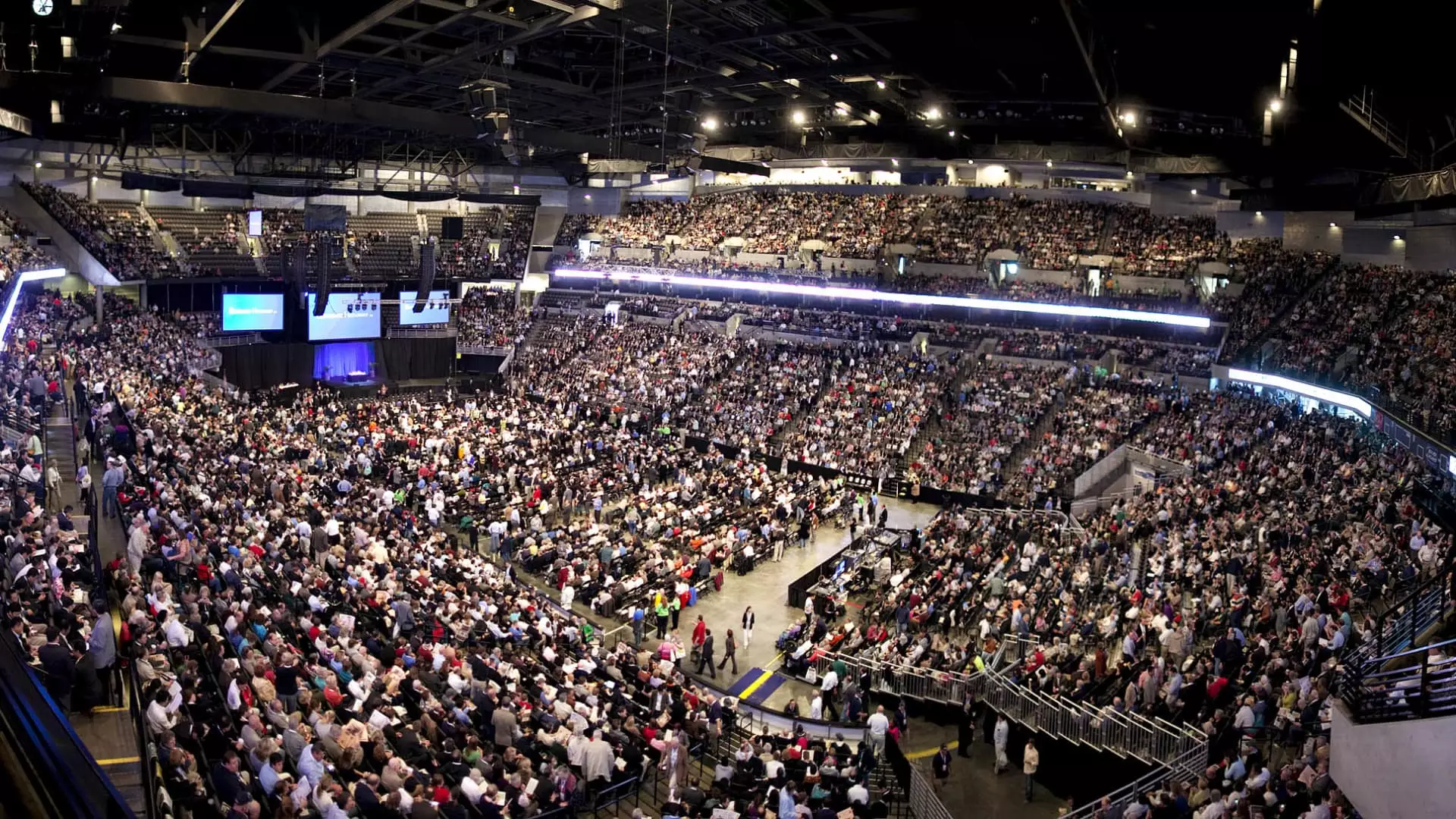The annual Berkshire Hathaway shareholder meeting is a magnum opus of capitalism that reflects not just the rise of a company, but the evolution of investment philosophy over the last six decades. When Warren Buffett took the helm of this failing Massachusetts textile company in 1965, few could have predicted the trajectory that would forge it into a colossal entity now often dubbed the “Woodstock for Capitalists.” Initially, just over a dozen zealous individuals gathered to listen to Buffett. Today, the event attracts upwards of 40,000 devotees from around the globe, illustrating the metamorphosis of both the company and the event itself.
This gathering is more than merely a meeting; it’s an electrifying embodiment of American enterprise and a touchstone for generation after generation of investors. Over the decades, it has transcended financial discussions and delved into the essence of personal philosophy, creating a strong communal spirit among attendees, reminiscent of religious gatherings. Such fervor underscores the unique blend of hero worship and aspiration that Buffett has harnessed, positioning himself as a beacon of wisdom in investment circles.
The Oklahoma Experience: Cult or Convention?
One cannot help but feel that Berkshire Hathaway’s annual meeting operates almost like a cult of investment, where disciples gather to absorb the “Oracle of Omaha’s” insights. As they queue outside the CHI Health Center, voices echoing both camaraderie and competition, it’s clear that this is no ordinary corporate event. The significance of being physically present at such a meeting embodies an intoxicating allure that live-streaming simply cannot replicate. Attendees describe the experience with a reverence usually reserved for sacred rituals, as if they are stepping into a cathedral of capitalistic ideals. For many, attending becomes a rite of passage that ties them to the broader community of investors, promoting values of prudence and integrity.
Yet, as the meeting grows exponentially larger and publicly broadcasted, one must wonder if the soul of the gathering is being diluted. With the recent passing of longtime partner Charlie Munger, the tone of the event is shifting. The presence of successors like Greg Abel may create a fresh dynamic, but it will be essential for Berkshire to balance innovation with the traditions that have made it great.
Commercialization vs. Authenticity
While carnival-like elements, including the “Berkshire Bazaar of Bargains,” add a festive appeal to the event, one must critically assess whether this commercialization detracts from the authenticity that has characterized the meeting in years past. The spirit of investing, once anchored in a deep understanding of businesses, now faces a potential conflict with consumerism. This shift raises questions about priorities: Is the focus still on investment principles or has it become a mere spectacle for merchandise and trinkets?
Of course, the charity auction featuring limited-edition works that benefit organizations like the Stephen Center injects a philanthropic angle into the proceedings, which is laudable. However, the overarching concern remains—will the genuine perspectives and insights that once drove investors to Omaha be overshadowed by the allure of shopping and social media spectacle? The battle between maintaining a grounded philosophy and embracing commercial opportunities is a nuanced one that Berkshire Hathaway must navigate.
The Future of Berkshire: Confronting the Challenges Ahead
As we look to the future, the next generation of investors faces hurdles like market volatility and regulatory changes, magnified by technological disruptions in investment strategies. With Buffett’s tenure winding down, it is imperative for Berkshire Hathaway to adapt its philosophy to address contemporary challenges without sacrificing its foundational values.
As more millennials and Gen Z investors begin to shape the landscape, the company’s communications, investment principles, and even its governance structures must evolve. Their expectations around transparency, social responsibility, and sustainability will challenge the status quo. The retaining of the hallowed traditions while simultaneously evolving with societal values will be a litmus test for Berkshire’s resilience and adaptability in the years to come.
Indeed, the annual meeting represents not just a celebration of past successes but a pivotal moment to ponder systemic adaptation in an ever-changing economic landscape. Can Berkshire Hathaway maintain its storied identity while addressing modern investor demands? The answer will define its legacy in the coming decades, as well as the legacy of capitalism itself.

